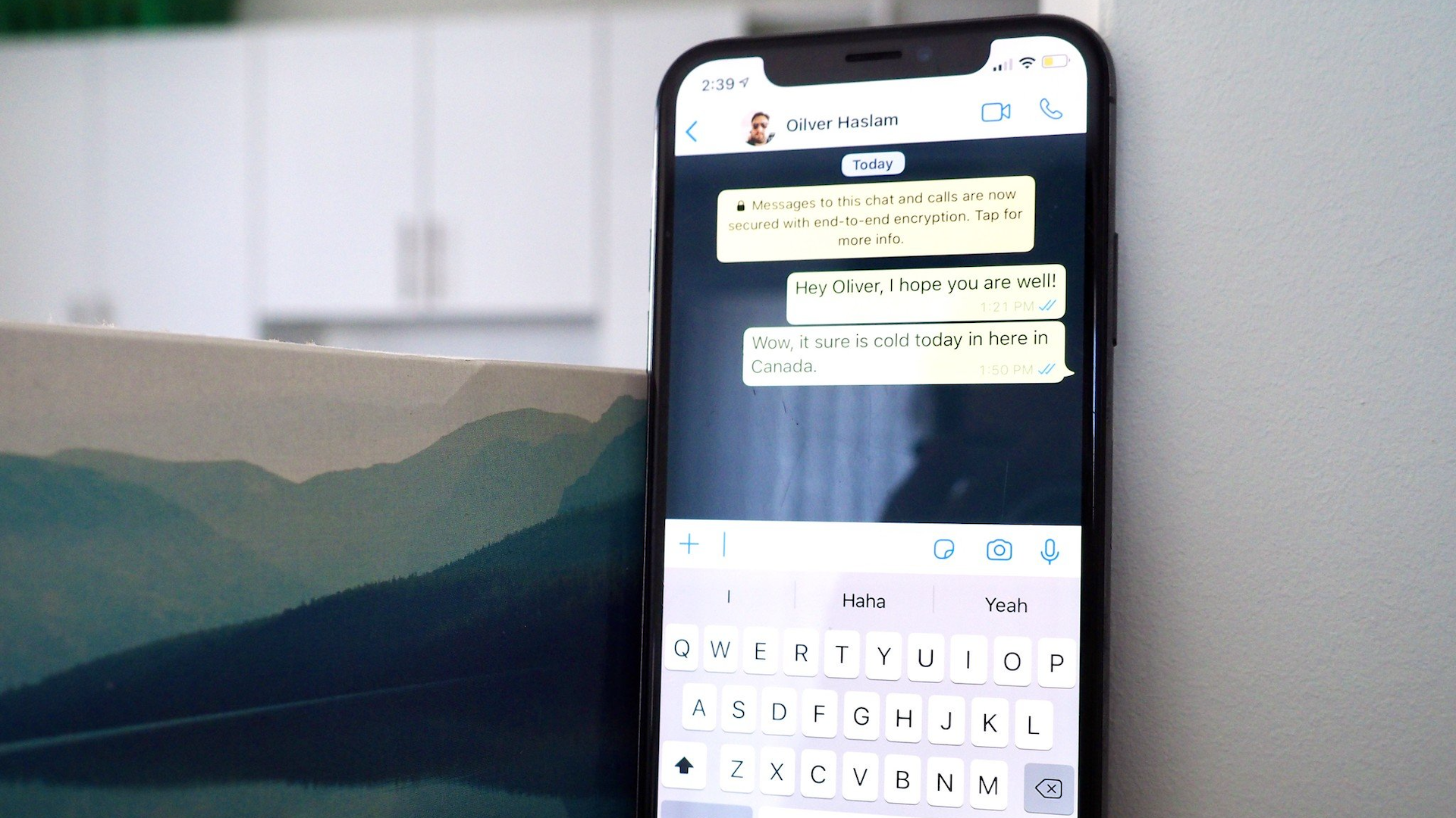Here's how the WhatsApp iPhone app will work with third-party messaging services to appease EU lawmakers
Apple isn't the only one that has to deal with the EU's Digital Markets Act.

iMore offers spot-on advice and guidance from our team of experts, with decades of Apple device experience to lean on. Learn more with iMore!
You are now subscribed
Your newsletter sign-up was successful
Given all the noise surrounding Apple, its iPhone App Store, and the EU's Digital Markets Act, you'd be forgiven for thinking that the Cupertino outfit is the only one that is having to make changes to adhere to new rules. But that's far from the case, with the meta-owned WhatsApp having to make a few changes of its own. Those changes will see something that many thought would never happen — and it might not have happened if it wasn't for the DMA.
That change is an upcoming WhatsApp update that will allow third-party messaging platforms to effectively hook into its network, bringing their own messages to the WhatsApp app on iPhones and other devices. There's a potential future where iMessages may one day appear in WhatsApp and WhatsApp messages could be received in the Messages app on Apple's devices. That's a way off right now, but WhatsApp is getting ready to allow third-party access as and when it's required.
The upcoming WhatsApp changes will need to happen by March, much like Apple's App Store tweaks, and a new report has detailed how this will all go down via an interview with Dick Brouwer, an engineering director at WhatsApp and someone who is in a position to spill the beans.
Better, connected
In an interview with Wired, Brouwer discussed the fact that WhatsApp will continue to encrypt its messages and that the interoperability required by the DMA won't affect that. In fact, it's key to what the company wanted to do — ensure that the change doesn't impact security or privacy.
“There’s real tension between offering an easy way to offer this interoperability to third parties whilst at the same time preserving the WhatsApp privacy, security, and integrity bar,” Brouwer explained “I think we're pretty happy with where we’ve landed.”
When the new interoperability first comes online it will support text messaging, images, files, videos, and voice messages but only between two people. Group messages and calls will come later, but they won't be part of the initial rollout and probably won't be added to the mix for some time.
Part of WhatsApp's privacy push will be the option to choose not to receive messages from other networks and services, something Brouwer says is an important decision given the potential for spam.
iMore offers spot-on advice and guidance from our team of experts, with decades of Apple device experience to lean on. Learn more with iMore!
“One of the core requirements here, and this is really important, is for users for this to be opt-in,” Brouwer told Wired. “I can choose whether or not I want to participate in being open to exchanging messages with third parties. This is important because it could be a big source of spam and scams.”
It's clear that WhatsApp isn't just opening the floodgates and leaving its users to fend for themselves, and it might hint at the approach that Apple might take should it also be forced to open the Messages app and iMessage as a whole, to the competition.
The European Commission is still trying to decide whether iMessage meets the required threshold to be considered a gatekeeper and if it is, interoperability will be forced. That could make the Messages app into an entirely different beast and change the way iMessage is used forever. However, given Apple's App Store stance, that might only be the case for people who live in EU countries. Time will of course tell on all fronts here, but given the commission's fraught relationship with Apple, anything is possible at this point.
More from iMore

Oliver Haslam has written about Apple and the wider technology business for more than a decade with bylines on How-To Geek, PC Mag, iDownloadBlog, and many more. He has also been published in print for Macworld, including cover stories. At iMore, Oliver is involved in daily news coverage and, not being short of opinions, has been known to 'explain' those thoughts in more detail, too.
Having grown up using PCs and spending far too much money on graphics card and flashy RAM, Oliver switched to the Mac with a G5 iMac and hasn't looked back. Since then he's seen the growth of the smartphone world, backed by iPhone, and new product categories come and go. Current expertise includes iOS, macOS, streaming services, and pretty much anything that has a battery or plugs into a wall. Oliver also covers mobile gaming for iMore, with Apple Arcade a particular focus. He's been gaming since the Atari 2600 days and still struggles to comprehend the fact he can play console quality titles on his pocket computer.
